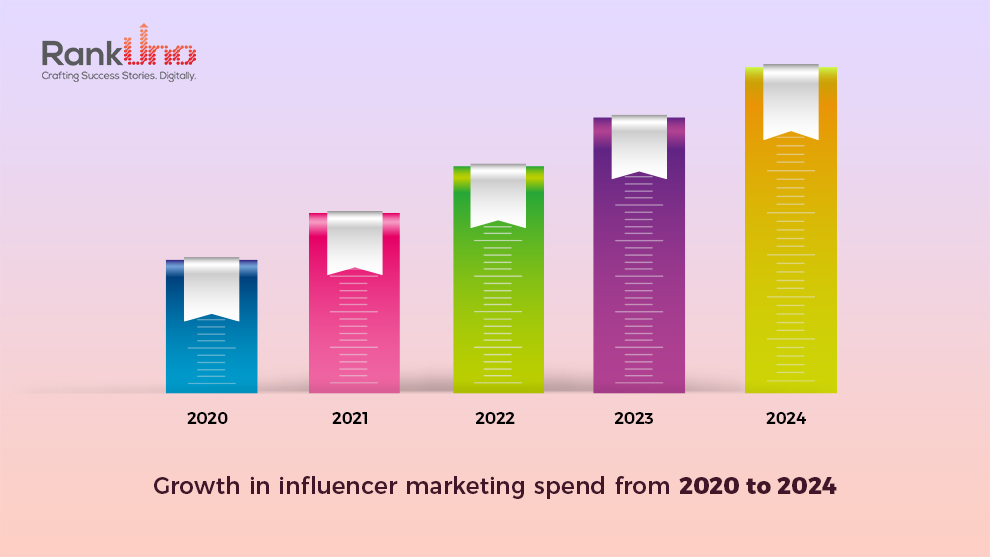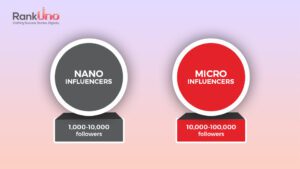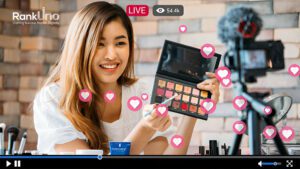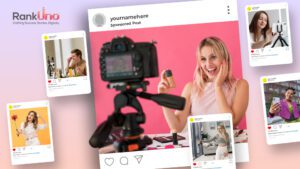Influencer marketing has transformed the world of marketing as we know it and continues to evolve rapidly. Understanding the latest trends is crucial for businesses looking to leverage this powerful tool for growth. This article explores key trends shaping influencer marketing, offering insights and strategies for brands and marketers to stay ahead in this dynamic industry.
Outline of Influencer Marketing Trends
- What is Influencer Marketing, and How Has It Evolved?
- Why is Influencer Marketing Essential Today?
- Who are Micro and Nano Creators, and Why Are They Important?
- How Authenticity and Transparency Are Driving Influencer Campaigns
- What Role Does Video Content and Live Streaming Play?
- How to Integrate Influencer Marketing Trends with Other Marketing Channels?
- What Are the Top Influencer Marketing Trends to Watch?
- How Have Brands Successfully Utilized Influencer Collaborations?
- What Challenges Do Marketers Face in Implementing Effective Influencer Marketing Strategies?
- The Role of Marketing Agencies in Influencer Marketing
What is Influencer Marketing, and How Has It Evolved?
Influencer marketing involves collaborating with individuals who have a significant following on social media platforms to promote products or services. Initially, this practice was dominated by celebrities and high-profile personalities. However, over the years, the focus has shifted towards micro and nano creators, who, despite having smaller followings, boast higher engagement rates and authentic connections with their audiences. The evolution of influencer marketing reflects a move towards more personalized and genuine interactions between brands and consumers. Influencer marketing differs from traditional ads in that it often leverages the niche audiences of influencers, resulting in a more targeted and impactful reach. The success of these campaigns relies heavily on selecting the right influencer, whose interaction and bond with followers can significantly enhance the customer experience and drive positive brand perceptions.
Why is Influencer Marketing Essential Today?

Influencer marketing is more crucial than ever due to the increasing reliance on social media for brand discovery and consumer engagement. Brands that leverage influencer marketing can reach targeted audiences more effectively, build trust, and enhance their digital presence. According to Forbes, 92% of brands intend to increase their influencer marketing investment, recognizing its effectiveness in driving engagement and conversions. Additionally, a Forbes survey revealed that 76% of marketing agencies and 52% of influencers are already utilizing AI to enhance their marketing strategies.
Who are Micro and Nano Creators, and Why Are They Important?

Micro-influencers (10,000-100,000 followers) and nano-influencers (1,000-10,000 followers) have gained prominence due to their niche audiences and higher engagement rates. Brands partner with these influencers to tap into their loyal and highly engaged follower bases. These influencers offer authenticity and relatability, which resonate with their followers more than traditional celebrity endorsements. This shift towards smaller influencers reflects a broader trend toward personalized and meaningful interactions in marketing.
How Authenticity and Transparency Are Driving Influencer Campaigns
As consumers become more discerning, authenticity and transparency have become paramount in influencer marketing. Influencers who openly disclose their partnerships and provide genuine endorsements are more likely to gain and retain their followers’ trust. This trend is driving brands to partner with influencers who prioritize honesty and integrity in their content. Authentic influencer relationships lead to more credible and effective marketing campaigns.
What Role Does Video Content and Live Streaming Play?

Amongst the different types of content, video content, particularly live streaming, has surged in popularity. Platforms like Instagram Live, TikTok, and YouTube offer influencers a dynamic way to engage with their audiences in real time. Video content allows for more interactive and immersive experiences, fostering deeper connections between influencers and their followers. The rise of video content and live streaming is reshaping the influencer marketing landscape, making it more engaging and impactful.
How to Integrate Influencer Marketing Trends with Other Marketing Channels?
Influencer marketing is no longer a standalone tactic; it’s integrated with broader marketing strategies, including organic and sponsored content on social media, email marketing, and content marketing. This holistic approach amplifies the impact of influencer campaigns and ensures consistent messaging across all touchpoints. By aligning influencer content with other marketing channels, brands can create cohesive and comprehensive marketing strategies that drive better results.
What Are the Top Influencer Marketing Trends to Watch?
Podcasts

Podcasts have become a powerful medium for influencers to engage with their audience on a deeper level. Brands are increasingly sponsoring podcast episodes or collaborating with influencers to create branded podcasts. This long-form content provides in-depth information and builds a loyal listener base, offering a unique opportunity for brands to connect with their audience.
Sponsored Content

Sponsored content remains a staple in influencer marketing. However, the approach has evolved to focus on creating high-quality, informative, and entertaining content that blends seamlessly with the influencer’s usual posts. This strategy maintains authenticity while promoting the brand effectively.
Giveaways
Collaborating with influencers to host giveaways has proven effective in driving engagement and increasing brand visibility. Giveaways attract a large number of participants and potential customers, boosting the brand’s reach and engagement metrics.
Reels and Short-Form Videos
Platforms like Instagram Reels and TikTok have popularized short-form video content, which is highly engaging and easily consumable. Influencers use these formats to create creative, viral content that can significantly boost a brand’s visibility and engagement.
How Have Brands Successfully Utilized Influencer Collaborations?
Glossier
Strategy: Glossier, a beauty brand, leveraged influencer marketing by collaborating with micro-influencers and encouraging user-generated content. They created a community-driven brand identity by involving real customers and influencers who genuinely loved their products.
Execution: Influencers shared their skincare routines featuring Glossier products on Instagram, YouTube, and blogs, using hashtags like #glossier and #glossierpink. This approach not only increased their reach but also fostered a sense of community and
authenticity.
Outcome: Glossier saw a significant increase in brand loyalty and sales. Their community-focused approach helped them build a robust and loyal customer base, driving consistent engagement and conversions.
Source: https://medium.com/marketing-in-the-age-of-digital/how-to-win-at-social-media-a-glossier-case-study-51b36040c67f
Daniel Wellington
Strategy: Daniel Wellington, a watch brand, effectively utilized influencer marketing to grow from a startup to a global brand. They targeted micro and macro-influencers across various social media platforms, sending them free watches and asking them to share their style featuring the product.
Execution: Influencers posted photos of themselves wearing Daniel Wellington watches, often accompanied by discount codes for their followers. This strategy created a buzz around the brand and made the watches highly desirable.
Outcome: This approach significantly boosted their brand visibility and sales, demonstrating the power of influencer marketing in brand growth.
Source: https://www.mayple.com/blog/daniel-wellington-case-study
What Challenges Do Marketers Face in Implementing Effective Influencer Marketing Strategies?
Difficulty in Measuring ROI
One of the significant challenges in influencer marketing is accurately measuring ROI. While engagement metrics are readily available, attributing sales and long-term brand impact to influencer campaigns can be complex.
Navigating Influencer Authenticity and Avoiding Fake Followers
Ensuring the authenticity of influencers and avoiding those with fake followers or engagement is crucial. Brands need to conduct thorough research and use analytics tools to verify the credibility of potential partners.
Managing Partnerships and Contracts with Influencers
Building and maintaining solid relationships with influencers requires careful management and clear, mutually beneficial contracts. Transparency and clear communication are essential to successful collaborations.
The Role of Marketing Agencies in Influencer Marketing
Marketing agencies play a crucial role in optimizing influencer marketing strategies for brands. They bring expertise in identifying the right influencers, managing relationships, and measuring campaign success. Agencies utilize data-driven tools and analytics to ensure that influencer partnerships align with the brand’s goals and target audience.
For instance, RankUno helps businesses navigate the complex influencer landscape by providing tailored strategies that maximize engagement and ROI. By leveraging their extensive network and industry insights, agencies like RankUno can create impactful influencer campaigns that drive brand growth.
Summary
- Influencer marketing continues to evolve, offering brands unique opportunities for engagement and growth.
- Micro and nano influencers are gaining prominence due to their higher engagement rates and authentic connections.
- Authenticity and transparency are crucial for building trust in influencer marketing.
- Video content and live streaming are reshaping the influencer marketing landscape.
- Recent trends include podcasts, sponsored content, giveaways, and short-form videos.
- Successful case studies, such as Glossier and Daniel Wellington, highlight the impact of influencer marketing.
- Challenges include measuring ROI, navigating influencer authenticity, and managing relationships.
- Marketing agencies play a vital role in optimizing and executing effective influencer marketing strategies.
Contact RankUno for expert assistance in developing and executing effective influencer marketing campaigns.





